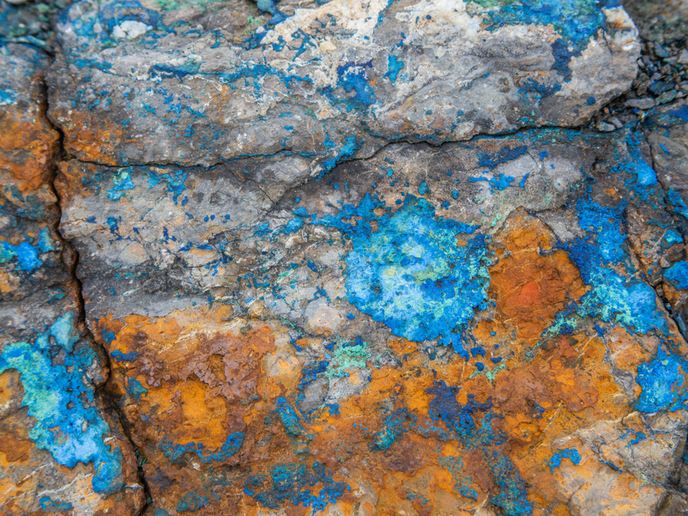Sustainable innovative solutions for mineral exploration
Access to resources is one of the most strategic security questions surrounding the delivery of the European Green Deal. The Green Deal aims to make Europe the first carbon neutral continent by 2050. Delivering on this commitment, the European Commission in July 2021 adopted a series of legislative proposals including the intermediate target of an at least 55 % net reduction in greenhouse gas emissions by 2030. The sustainable utilisation of raw materials, including metals and minerals, and particularly Critical Raw Materials such as rare earths, is one of the main prerequisites to making this switch happen. This is due to their vital role in industrial value chains, especially in the energy, mobility, ICT and defence sectors, and the production of renewable energy technologies, electric vehicles, and mobile phones among others.
New approaches applied
As the demand for raw materials is growing, EU research and innovation funded under Horizon 2020 helps to improve access to metals and minerals, while optimising their consumption and improving extraction conditions across Europe. Mineral exploration is conducted to search for commercially viable concentrations of ores and minerals for mining purposes. A highly accurate estimation of the volume of the deposits is crucial due to the capital-intensive nature of the mining operation. Innovative and sustainable approaches to the discovery of metals and minerals include the autonomous exploration and mapping of flooded mines and seabed terrains for providing the high-resolution information needed for reliable identification of ore bodies. Another method is to improve the accuracy of geo-models and economic evaluation of ore reserves. In addition, reducing high exploration costs and enhancing the participation of civil society from the start of exploration will help raise awareness and understanding among local communities and other stakeholders. Scaling up the most promising technologies and launching them on the market will strengthen the competitiveness of European industries in this sector.
Focus on EU research
In this CORDIS Results Pack we focus on the innovative results developed by Horizon 2020-funded projects working on exploration technologies for a sustainable supply of raw materials. The HiTech AlkCarb project brings together partners from across Europe and Africa to significantly improve geological models for the exploration of 'hi-tech' raw materials like the rare earth elements associated with alkaline rocks and carbonatites. ROBUST develops an autonomous robotic survey system for identifying and analysing polymetallic nodules at great depth in the ocean. UNEXMIN creates a highly sophisticated robot to explore and map flooded mines, retrieve geological data and conduct analysis of water chemistry and mine wall properties, while SOLSA combines sonic drilling, analytical equipment and informatics to optimise mining operations performance. INFACT designs innovative, non-invasive and socially acceptable mineral exploration technologies to help unlock unrealised potential in new and established sites. Finally, Smart Exploration, PACIFIC and NEXT develop cost-effective and environmentally friendly solutions for mineral exploration and perform studies to better understand the factors influencing the public acceptance of mineral exploration.



